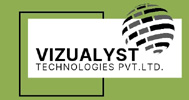Medical Coding
Medical Coding Course-after 12th, Eligibility, Syllabus, & Duration
The medical science industry both transformed and transitioned to the next level using technology at its best and this has come under the global roof. Medical coding presents a compelling opportunity for individuals who have an undeniably strong desire to work in the healthcare industry. Certainly, medical coders play an important role in organizing patient data sequentially using precise medical codes. They meticulously analyze medical reports to fully comprehend the information and then assign the relevant codes to precisely represent the documented diagnoses and procedures. Eventually, the healthcare sector became more digital, and technology made the work easier and more efficient for medical coders.

Why to Choose a Medical Coding Course
- Employment Opportunities: A vital aspect of healthcare administration involves medical coding. Certifying in this significantly enhances job prospects in healthcare, unlocking numerous opportunities in insurance companies, hospitals, and clinics. This certification sets the stage for substantial personal and professional development.
- Precise Invoicing and Compensation: Medical coders are essential in interpreting patient care and treatments, diagnoses, and medical procedures.
- Career Advancement: Understanding medical coding is crucial for credibility in healthcare and creating professional opportunities. It accurately translates medical information into standard codes for efficient billing and payment, improving career prospects.
- Work-from-home opportunities: Completing at the institution gives you the abilities and information required to operate in the field virtually or from home.
- Learning Never Stops: Medical coding course offer chances for professional growth and ongoing education in light of the ever-changing healthcare industry. A person who wants to succeed in the area must keep up with the latest technologies and coding methods.
Why to Choose a Medical Coding Course
Medical Coding Course Soon After Completing 12th and Duration
- Firstly there are multiple options available for scholars. Certainly, upon successful completion of 12th grade, students significantly have a wide array of options for furthering their education.
- These options include postgraduate diploma courses, diplomas, or medical coding programs albeit aimed at acquiring their degrees.
- Enrolling in a Course after 12th grade is equivalent to embarking on a rigorous three to four-year undergraduate or bachelor’s degree program. This course lays out a comprehensive pathway to attain professional status.
Following graduation, pursuing Medical Certification Courses, a post-graduate degree, or a medical degree is the most effective approach to propel your career forward.
Eligibility Criteria for Medical Coding Course
- In pursuing medical coding courses, scholars need to demonstrate diligence, and endurance, as well as proficiency in problem-solving, communication, time management, and organization skills.
- If the scholar is from a non-life science background, such as B-Tech, MBA, or post-graduation in English, they will need to take additional certification courses to gain a comprehensive understanding of this sector. Consequently, this indicates that there are no strict eligibility guidelines.
- Individuals with a bachelor’s degree in medicine can work as medical coders without facing any legal restrictions. Contrarily, it’s great to hear that enrolling in a course only requires completing high school and obtaining a diploma.
Medical Coding Course Curriculum
The firm provides several online courses and covers the syllabus of the course widely and in the most appropriate way to make the syllabus easy to understand for scholars. The syllabus of the course is:
- Anatomy & Physiology
- Medical Terminology ( prefix, suffix & abbreviation)
- Introduction
- Structure & Conventions
- General Coding Guidelines
- All Human Systems
- Chapter Specific Guidelines
- ICD 10 CM
- CPT 4 Procedure Coding
- Evaluation and Management Coding
- Anesthesia Coding
- Surgery Coding
- Radiology Coding
- Pathology Coding
- Medicine Coding
- HCPCS Coding
- Medical Billing
- Revenue Cycle Management
- HIPAA Training
- Soft Skill Development and Resume Writing
FAQ
No, most courses are for beginners and do not need healthcare experience. It’s empowering to be knowledgeable about basic medical terms and anatomy. Always verify that you meet the course requirements.
Employees rely on an at length thorough understanding of medical language and codes, hospital standards, government laws, and personal expertise in the area. The American Association of Professional Coders equally equates a coder’s skills to those of a scholar, investigator, educator, and problem solver.
Yes, it offers remote work opportunities with the increase in electronic health records (EHRs) and telecommuting options for healthcare organizations.
In the coding process, a qualified and certified medical coder is responsible for conducting the coding. The first step in this is reviewing the physician’s notes from the previous day’s batch of patients.
